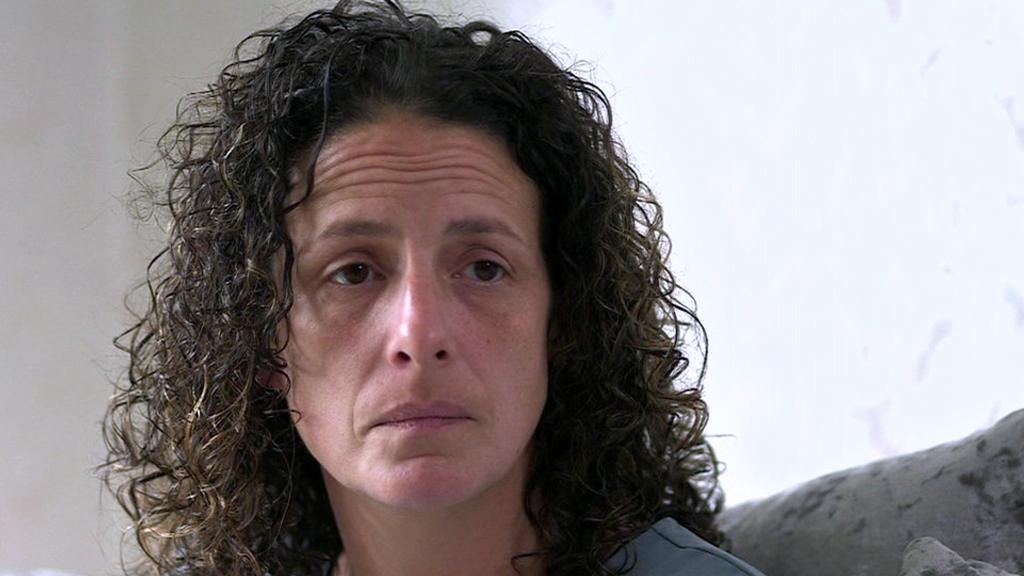Domestic violence: 'I was told to sleep in the outhouse'
- Published
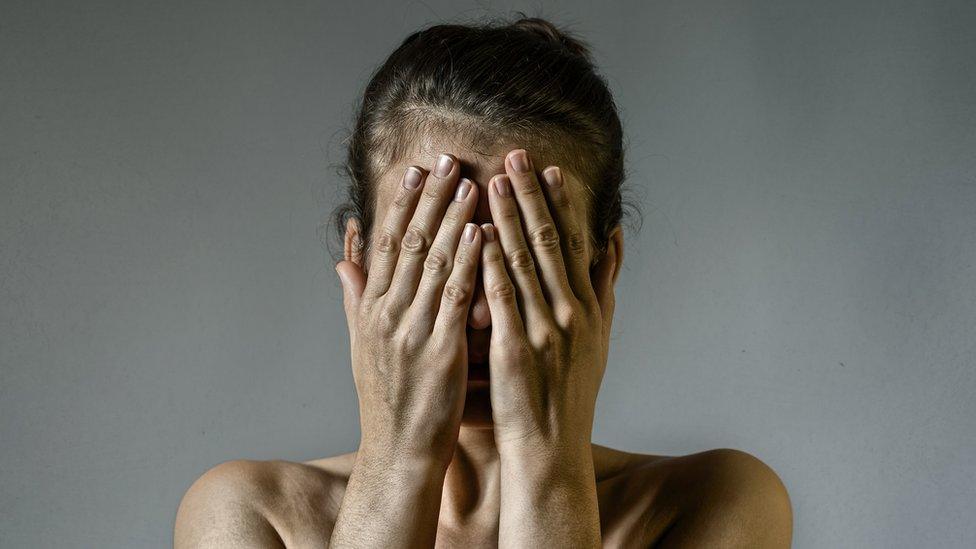
One in three women in Wales has experienced some form of physical or sexual abuse
As Welsh Women's Aid marks 40 years of campaigning to end violence against women, Sarah from Monmouth reveals how living with an abusive partner made her question her own sanity.
It sounds such a cliche, but when I first met my ex-partner, he was the perfect gentleman.
We were friends for two years, having met through our young children. Both widowed, both lonely. Everyone, including family, thought it a perfect idea that we get together and, in October 2009, we did.
By the January we were engaged, and four months later, we went on our first holiday abroad with the children.
But while we were there, he saw me talking to an elderly man, and afterwards, back in the hotel room, he hit me for the first time, accusing me of spending too much time with him.
I was stunned, of course.
I said: "You will never do that again to me", and the next morning, caught a taxi to the airport with my daughter to catch a plane home.
But there was a cruel twist of fate.
Due to a technical failure at check-in, all flights had been cancelled that day.
So instead of fleeing, I returned to the resort.
When he realised, he wooed me, apologising so profusely that It was impossible not to forgive him.
I truly felt he was sorry, and when we eventually flew home together, we were more of a couple than ever.
By the June, we had bought a house together and moved in with our children.
This is when things started to go badly wrong.
First there was pushing and shoving - always out of sight of the children.
Then the shoves got harder and turned into slaps, followed by punches.
He smashed my head into the bathroom mirror, and my ribs were frequently broken.
Once, after I'd dropped a vegetable on the floor, he whacked the back of my head with a pepper mill, accusing me of trying to poison him.
More than the violence, though, there was gaslighting - where someone is psychologically manipulated into questioning their own sanity.
An example of this was my two dogs.
One day, he told me they could no longer stay in the house and needed to live in the outhouse.
I refused, as one was very old and I was worried she might die. So he told me to sleep out there with them until they got used to it.
Unbelievably, I did.
I slept in the outhouse, until a neighbour saw me out there in my dressing gown, and my ex - wary of the attention - brought us back inside.
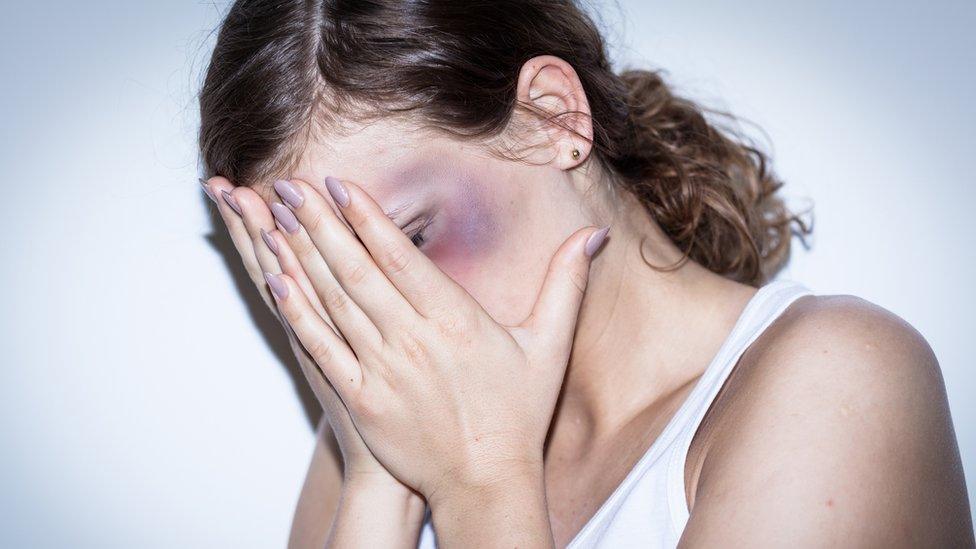
Abuse can often take the form of gaslighting, where a victim is psychologically manipulated into questioning their own sanity
Then the gaslighting really began. What sort of woman was I, putting my dogs before my children and him?
And I believed him. What sort of woman was I? No wonder he did these dreadful things.
Eventually, I set off to the vets, having planned to re-home one dog and euthanise the older one. In my mind, there was no other choice.
But as I was reversing down the drive, sobbing my eyes out, he came out and told me I didn't need to do it.
And in doing so, he turned into my hero.
People may wonder how I - an educated, professional woman - allowed myself to be so manipulated.
But, looking back, there was no time to think rationally. I was too busy worrying about where the next blow would come from and frenziedly trying to keep the peace.
I also never told anyone what was happening, and my bruises were put down to "clumsiness".
No-one knew, or so I thought. To them, he was still the perfect man, calling to check I was okay and buying me clothes.
But I do once remember a work colleague gently touching my cheek and saying: "That's one bruise too many."
I just smiled and mumbled something about poor balance, but inside I was praying he wouldn't push the issue.
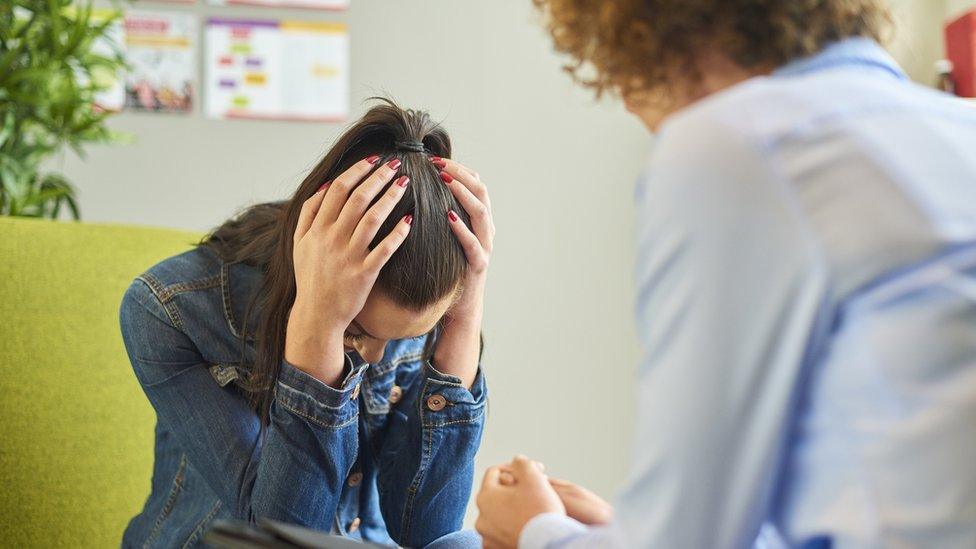
Last year, the Welsh Women's Aid helpline received more than 30,000 calls, emails and webchat inquiries
These were very dark times. I was undoubtedly depressed, and had occasional thoughts of suicide.
If it wasn't for the kids and dogs, and my faith, who knows?
Ultimately, things came to a head in the spring of 2012 when I returned from the shops.
He accused me of forgetting an item he'd asked for.
I told him he hadn't asked for it, but again - classic gaslighting - he insisted he had so I would question my own mind.
He barricaded me in the downstairs loo knowing I am claustrophobic, but when he let me out, something flipped - a feeling I had nothing to lose anymore - and I said, "You can't treat me like this".
I repeated it over and over again, and it made him so mad, he went for me big time, kicking and punching me.
I rolled into a ball on the floor, trying to protect my head as I always did.
My daughter, who was upstairs, heard the thumping and came down.
She jumped on his back but he went for her too before eventually disappearing off into the house, which allowed her to run to the neighbours.
The police came, and he was arrested and eventually convicted of assault and banned from coming near or contacting me.
But I clearly remember the policeman speaking over his radio about a domestic abuse victim and me wondering who it was.
It was a complete shock to realise he meant me and it took me a long time to process how this happened. But domestic abuse can happen to anyone. It is not about the victim, it is about the mindset of the perpetrator and no-one is exempt.
Now, thankfully, several years on, I am much happier.
But, like the dent in the back of my head from the pepper mill, the fear and sadness I experienced will never leave me.

What is gaslighting?
The term comes from a 1938 stage play, Gas Light, in which a husband attempts to convince his wife and others that she is insane.
He dims the light but insists she's imagining it.
It is one tactic of coercive and controlling behaviour that aims to make a victim doubt themselves, their perception of events and even their own sanity.
Techniques include calling into question the victim's memory of an incident, trivialising a victim's thoughts or feelings, accusing the victim of lying or making things up, and mocking the victim for their "misconceptions".
Some of the signs to watch out for include: Feeling confused, continually apologising to your partner, having trouble making simple decisions, and withholding information from friends and family so you don't have to make excuses for your partner.

Established 40 years ago, Welsh Women's Aid is the umbrella body in Wales, working to end violence against women.
Last year, its Live Fear Free helpline received more than 30,000 calls, emails and webchat inquiries.
Not only concerned with domestic abuse, the organisation also helps combat female genital mutilation, child sexual abuse, forced marriage, honour-based violence, stalking, sexual harassment and sexual exploitation.
Gwendolyn Sterk, public affairs manager, said, "We know that violence affects all women, regardless of age, class or background.
"We also know that gender inequality and sexism play a key role in perpetuating this violence and abuse.
"That's why a key focus of our work is calling on schools to implement healthy relationship education, so the next generation will see reduced rates of such violence."
Live Fear Free helpline: 0800 80 10 800.
- Published18 February 2017
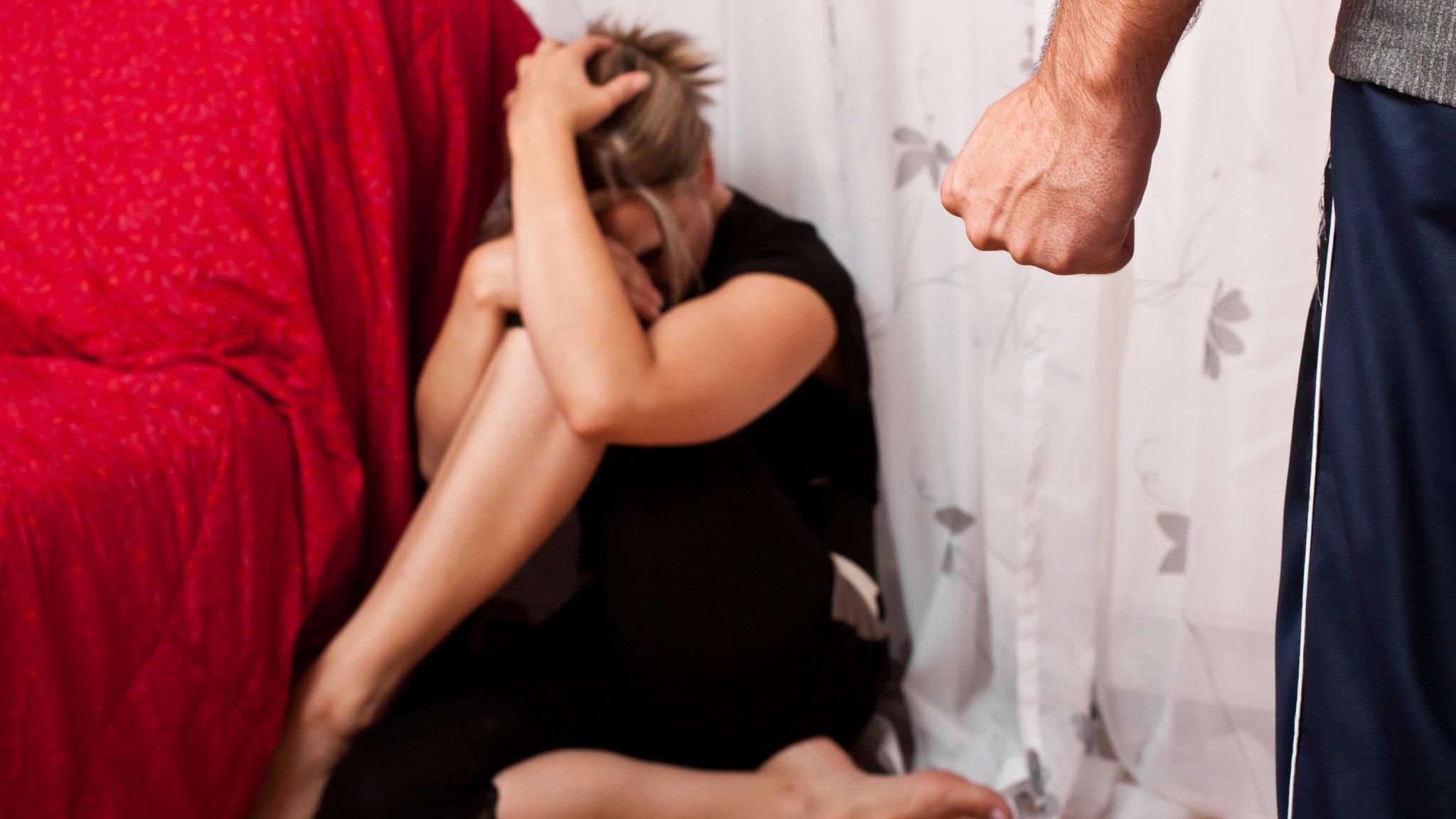
- Published31 October 2017
